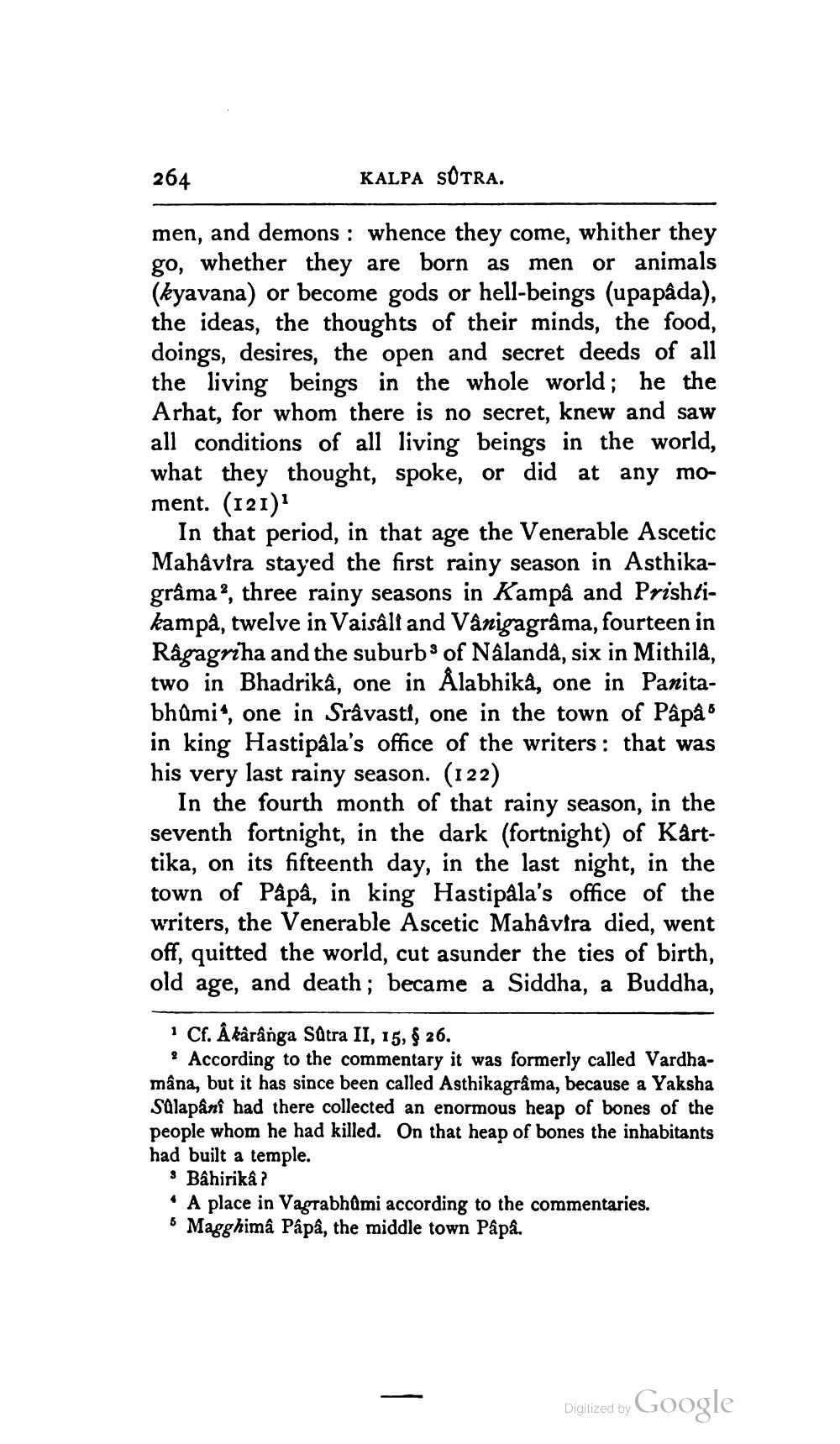________________
264
KALPA SOTRA.
men, and demons: whence they come, whither they go, whether they are born as men or animals (kyavana) or become gods or hell-beings (upapada), the ideas, the thoughts of their minds, the food, doings, desires, the open and secret deeds of all the living beings in the whole world; he the Arhat, for whom there is no secret, knew and saw all conditions of all living beings in the world, what they thought, spoke, or did at any moment. (121)
In that period, in that age the Venerable Ascetic Mahavira stayed the first rainy season in Asthikagrâma', three rainy seasons in Kampâ and Prishtikampa, twelve in Vaisâlt and Vanigagrâma, fourteen in Râgagriha and the suburbs of Nálandâ, six in Mithila, two in Bhadrikâ, one in Alabhika, one in Panitabhūmi“, one in Srâvasti, one in the town of Papa in king Hastipâla's office of the writers: that was his very last rainy season. (122)
In the fourth month of that rainy season, in the seventh fortnight, in the dark (fortnight) of Karttika, on its fifteenth day, in the last night, in the town of Papâ, in king Hastipala's office of the writers, the Venerable Ascetic Mahâvîra died, went off, quitted the world, cut asunder the ties of birth, old age, and death; became a Siddha, a Buddha,
1 Cf. â kârânga Sätra II, 15, § 26.
. According to the commentary it was formerly called Vardhamâna, but it has since been called Asthikagrâma, because a Yaksha SQlapâni had there collected an enormous heap of bones of the people whom he had killed. On that heap of bones the inhabitants had built a temple.
Bâhirika ? • A place in Vagrabhūmi according to the commentaries. 6 Magghimâ Papa, the middle town Pápå.
Digitized by Google




